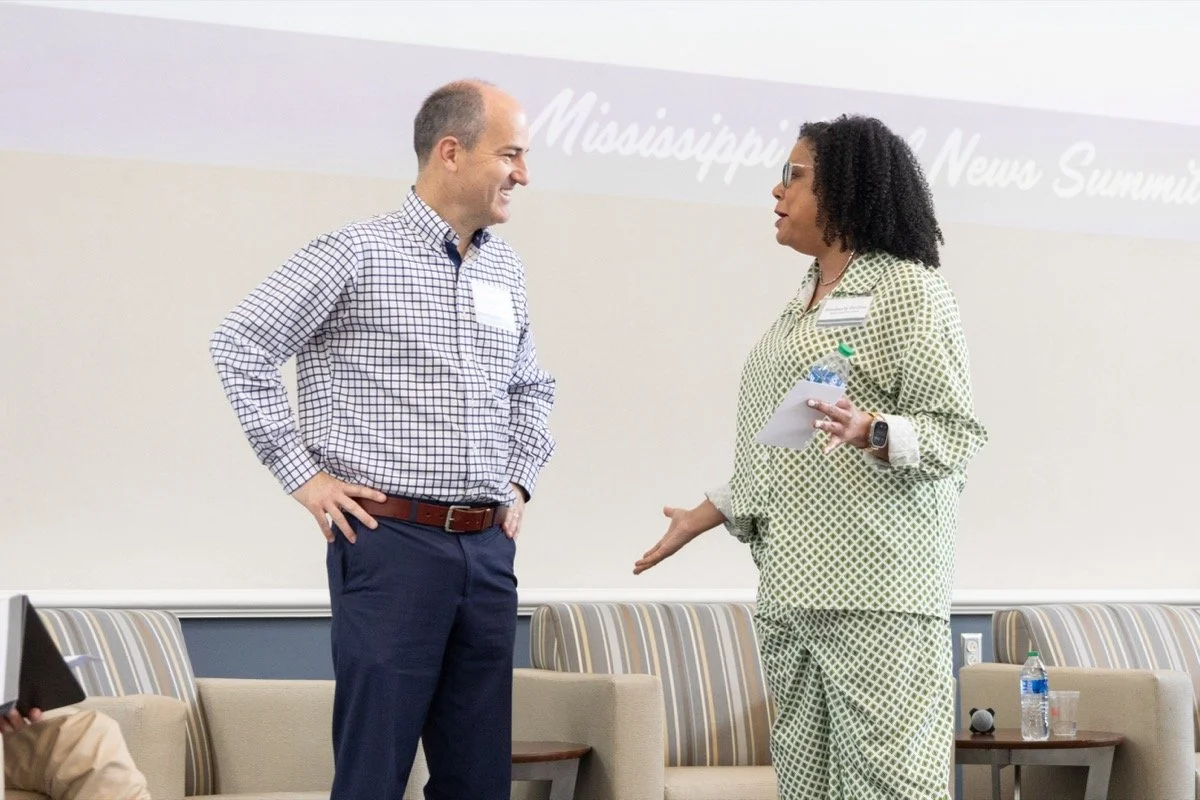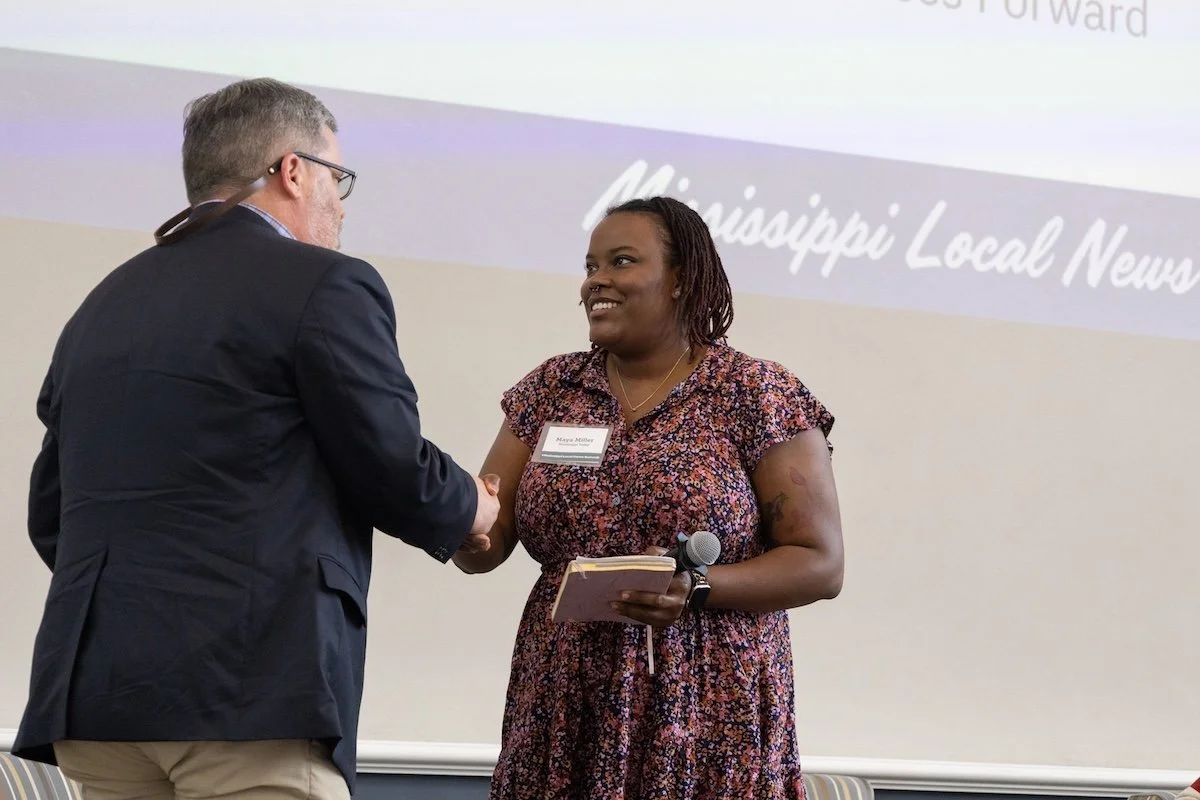
Mississippi Local News Summit 2025
Media leaders from around the state came together on May 15-16, 2025, at the University of Mississippi.
The 2025 Mississippi News Summit brought together more than 50 people from around the state, with a focus on building connections across media types, business models and regions of the state.
The event marked the first initiative of Press Forward Mississippi, a coalition of funders seeking to strengthen Mississippi communities by reinvigorating local news. It was held May 15-16 at the University of Mississippi in Oxford, a follow-up to the first statewide convening hosted on the campus in 2024.
Press Forward Mississippi has identified three areas of interest where the priorities of community-based funders and Mississippi media leaders intersect. We invited people with diverse perspectives to help surface strategic ideas for moving these areas forward.
Here’s a look at their conversations:
CONVERSATION TAKEAWAYS
1. Meeting People Where They Are
In conversation: Maya Miller, Mississippi Today; Charles Coleman, StoryWorks Theater; Liz Worthington, American Press Institute; Jackie Hampton, Mississippi Link; Laeyla Walters, Jackson Youth Newsroom; facilitated by Layne Bruce, Mississippi Press Association.
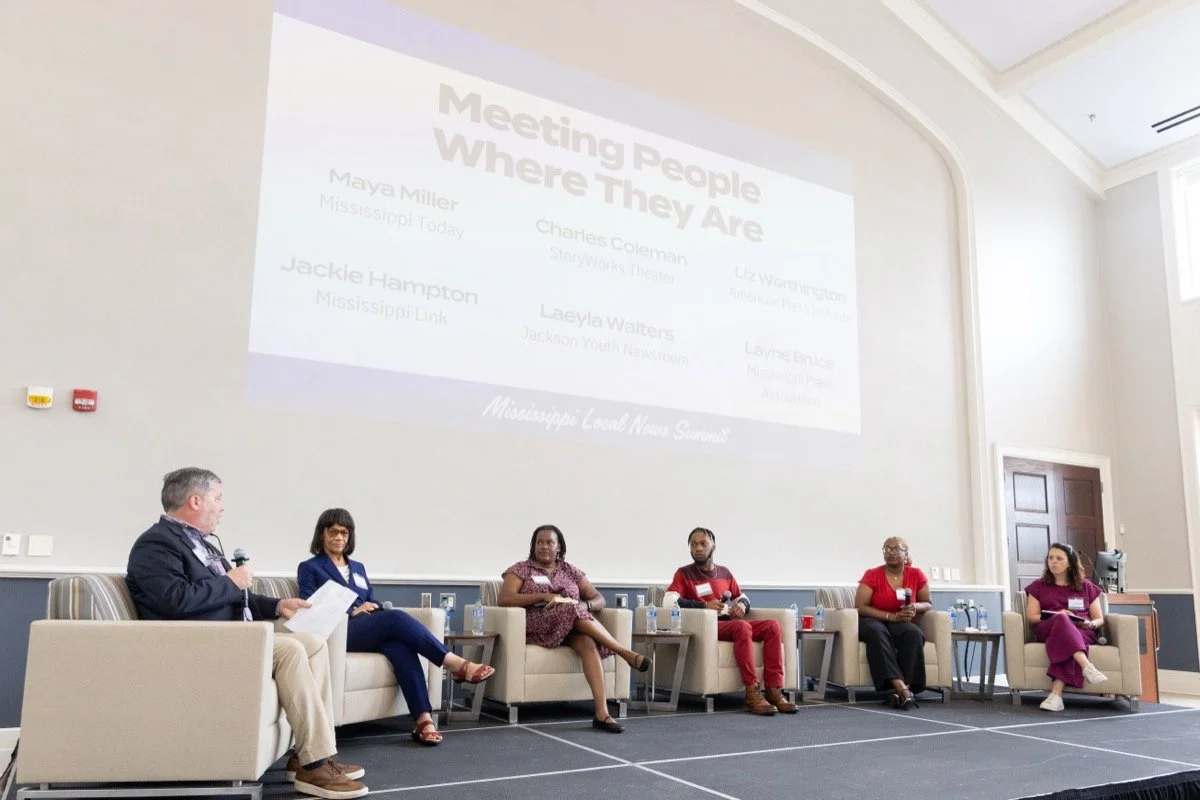
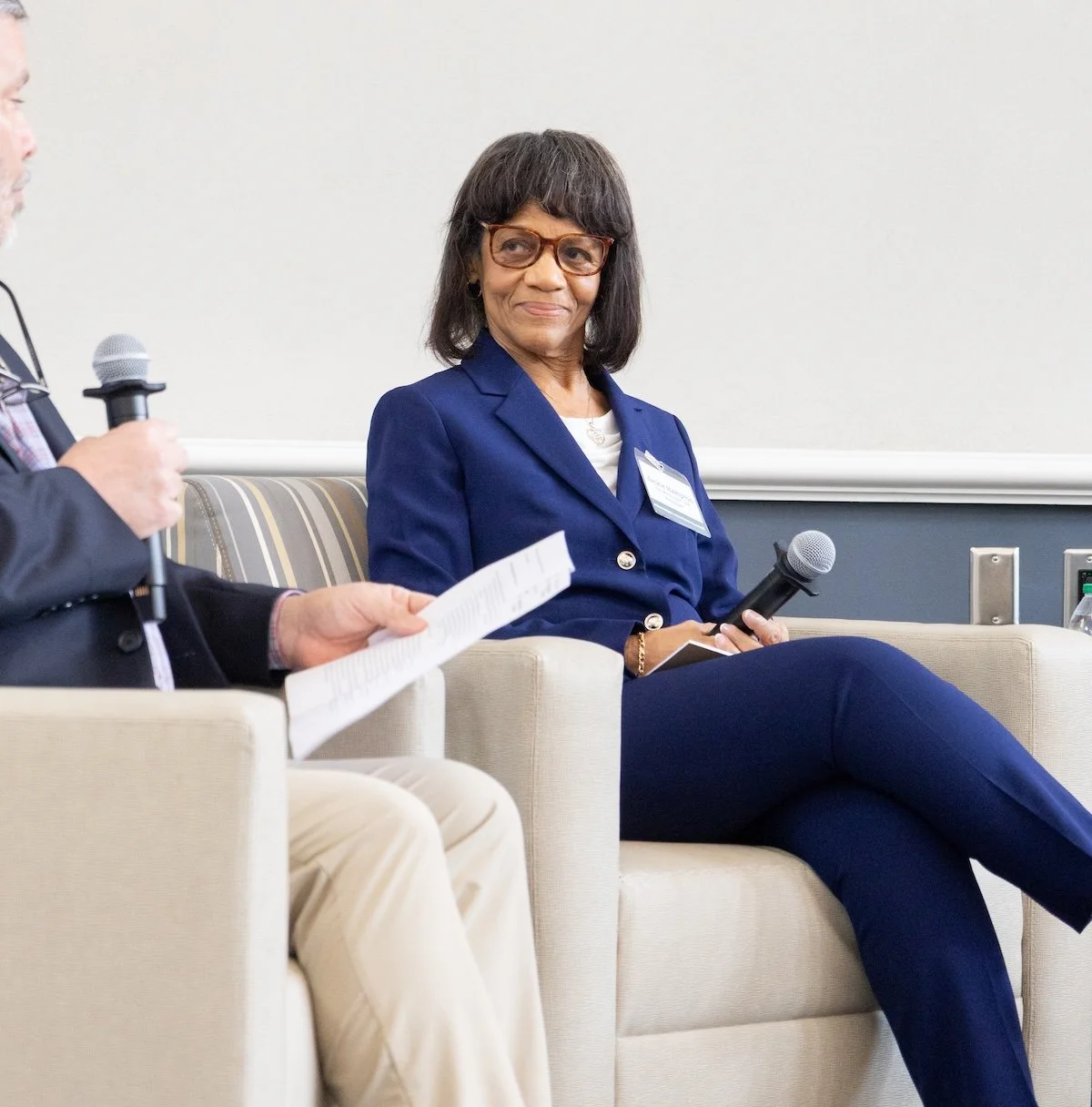
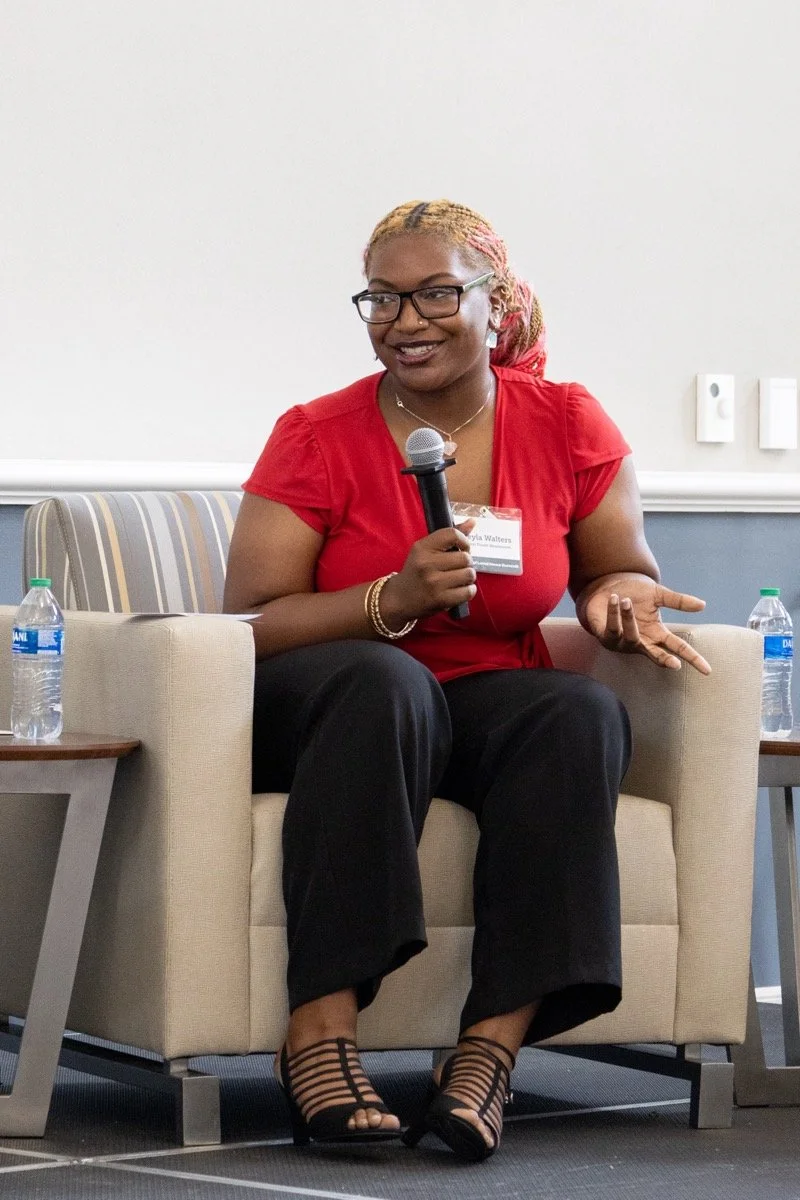
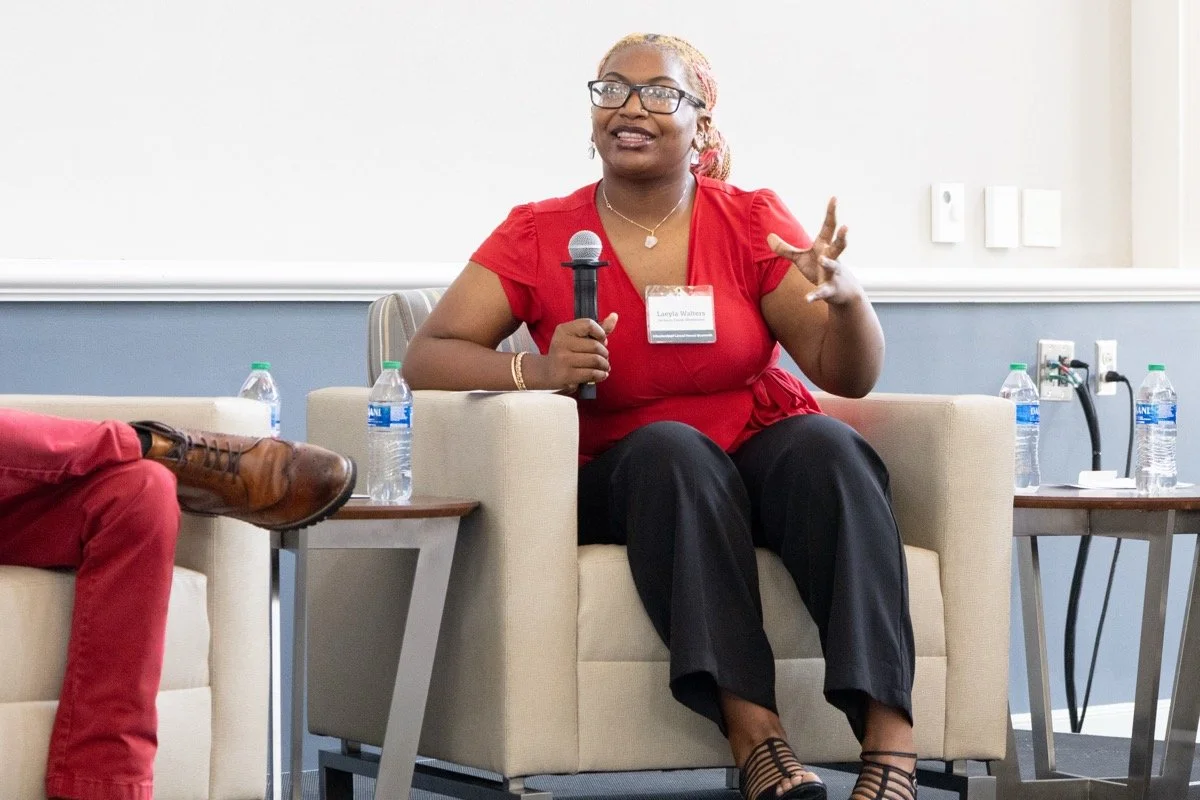
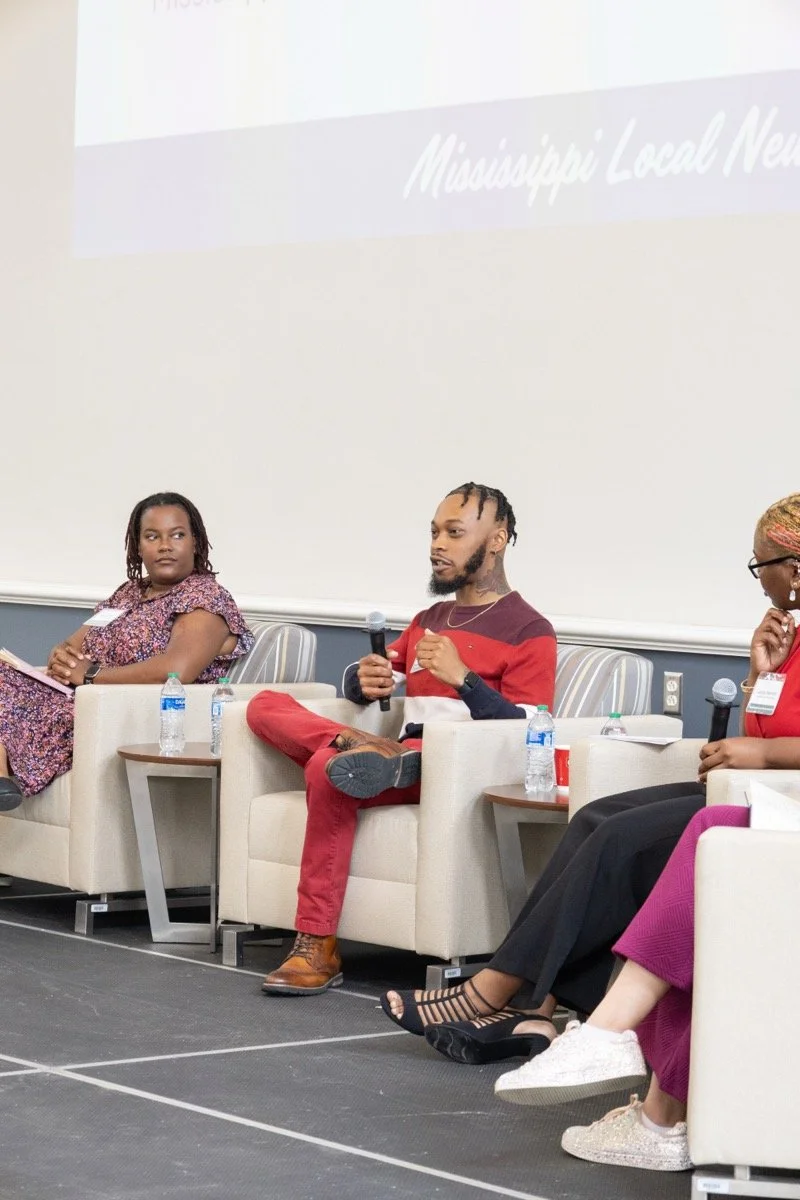
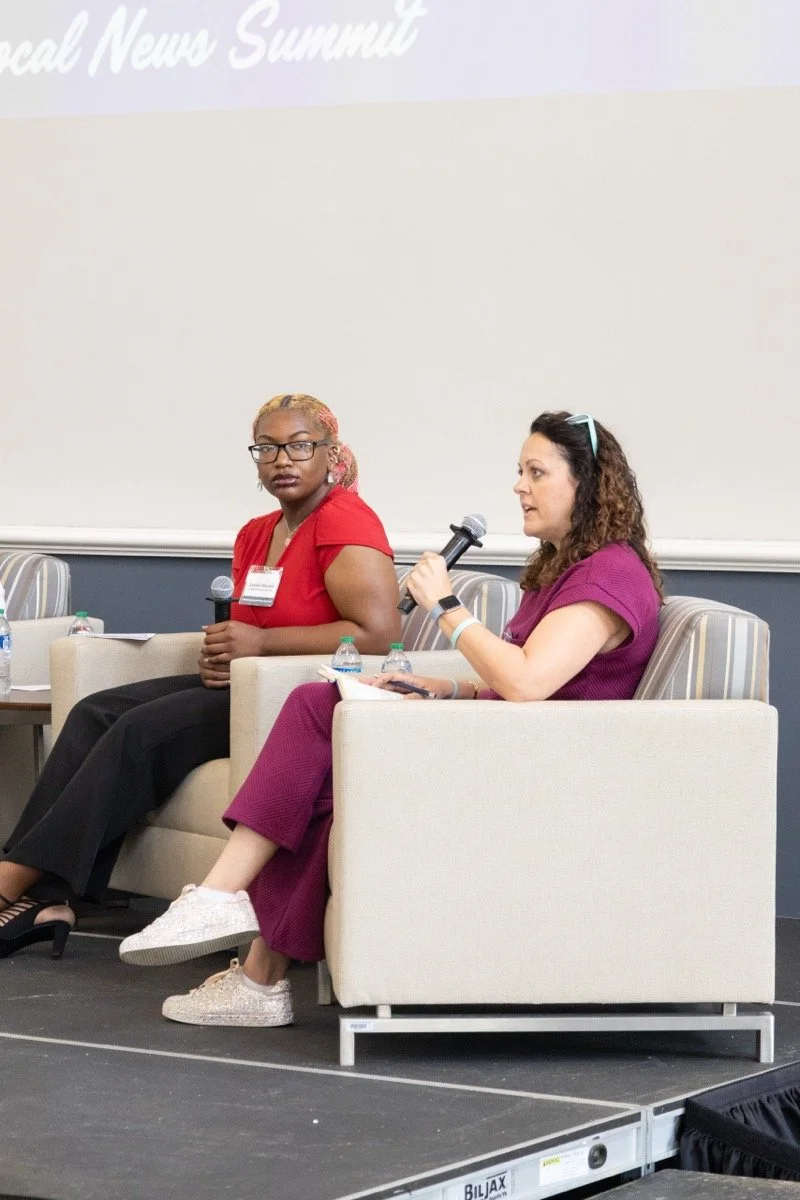
-
Mississippi media outlets are seeking new strategies to engage local audiences. Funders want to empower innovation that puts audience needs and perspectives first, to better serve all the people in a community.
-
Local media outlets are experimenting with innovative ways to connect with diverse audiences, from StoryWorks Theater turning investigative journalism into plays that spark community conversations to weekly newspapers like the Mississippi Link maintaining deeply personal relationships with readers who call, email, and share feedback. Alongside data-driven strategies, newsrooms are driving engagement by listening deeply, creating spaces for dialogue, and letting community members shape the stories being told.
-
Local newsrooms need practical strategies and dedicated time for reporters to be physically present in communities; this allows direct interactions to shape coverage topics and build trust, instead of driving editorial priorities primarily within the newsroom. Key challenges include balancing content-production demands with community engagement, finding efficient ways to conduct listening sessions, and developing sustainable models for reaching diverse audiences—particularly younger readers and marginalized communities who often feel disconnected from traditional media.
“Attending listening sessions, coffee shops, political forms, candidate mayoral debates and things like that — if I had more time and more money, I would do that all the time, because I think audience engagement is all about intentional visibility. It’s putting yourself in front of people and asking them what they care about.”
2. New Models for Trusted Local News
In conversation: Marlon A. Walker, The Marshall Project; Ed Simpson, Ph.D., University of Southern Mississippi/Roy Howard Center for Community Journalism; Blake Kaplan, McClatchy/The Sun Herald; Liz Worthington, American Press Institute; facilitated by Andrea Hickerson, Ph.D., University of Mississippi School of Journalism & New Media.
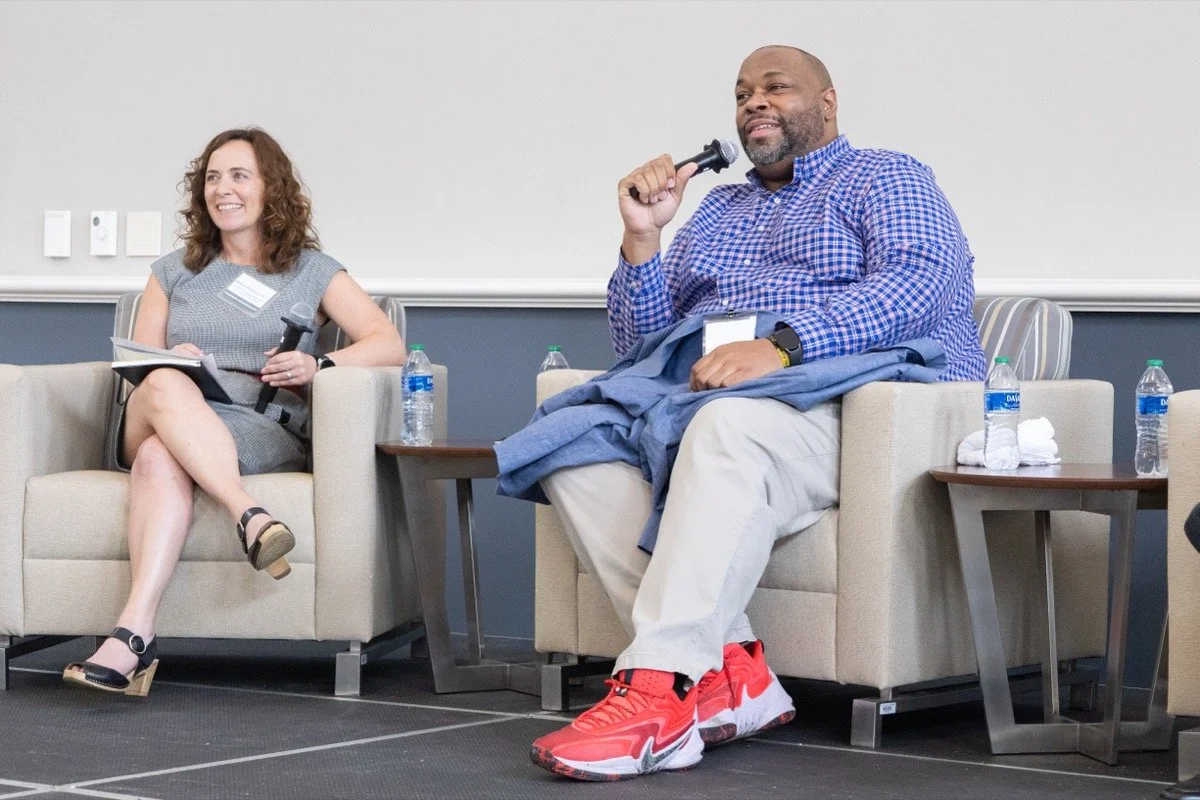
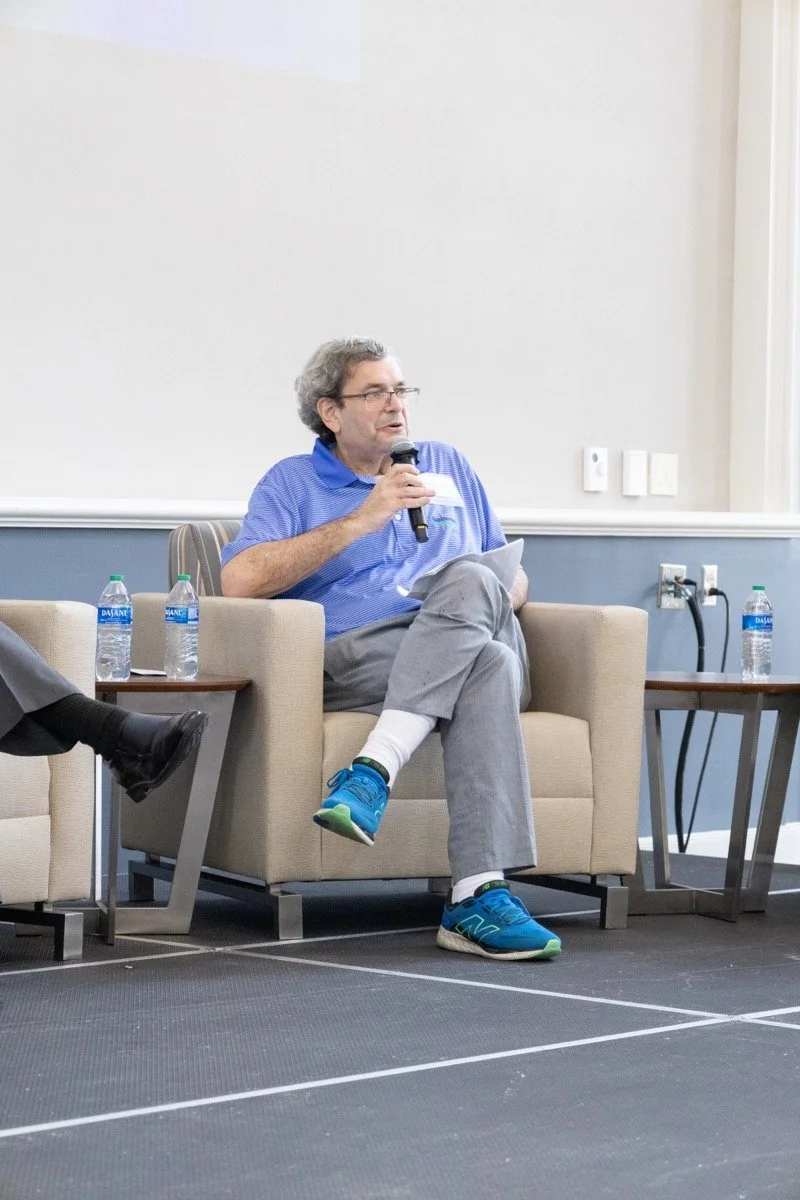
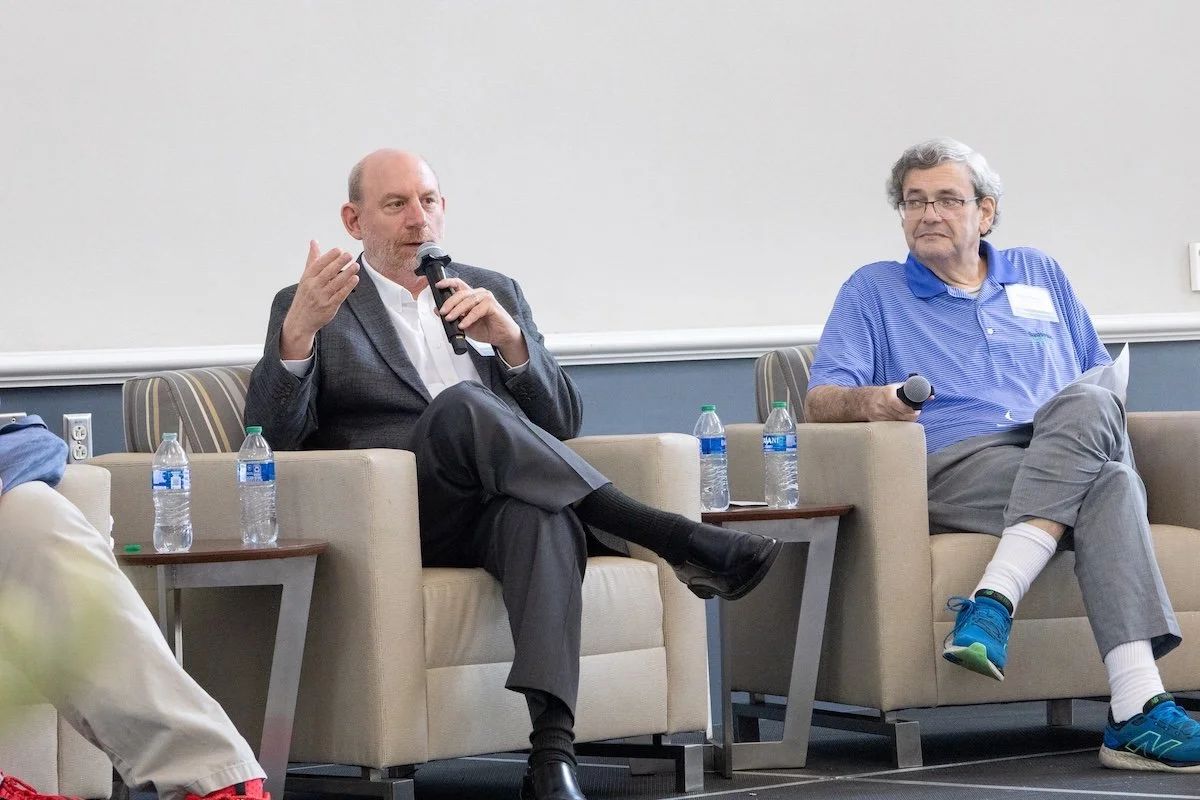
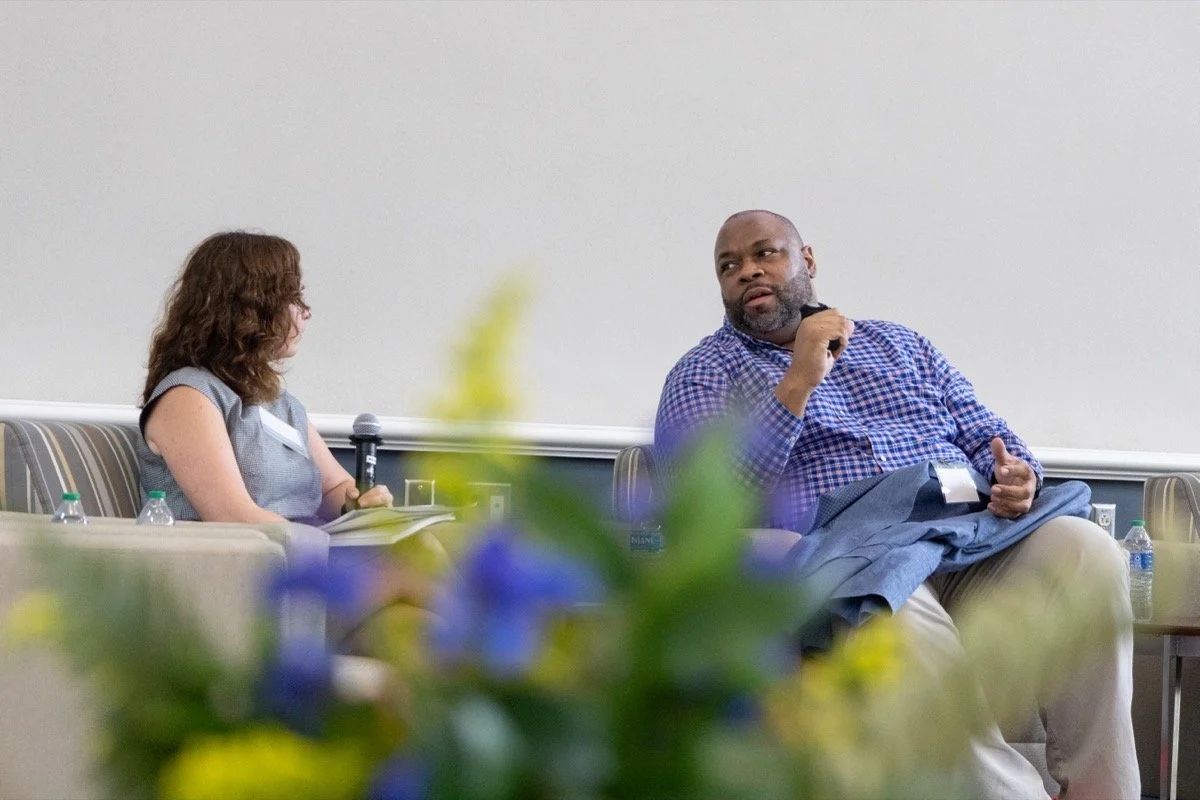
-
Mississippi media face pressure to adapt in the digital age. Funders want to support transformation that helps media operations become more sustainable and valuable to the communities they serve.
-
Newsrooms are rethinking their models to focus on trust, efficiency and collaboration. Outlets like The Marshall Project are prioritizing quality-over-quantity content strategies, along with transparent, explanatory reporting. Others, including nonprofit and university-based newsrooms, are producing free-to-republish content to support coverage gaps across the state. At McClatchy, AI innovation is being driven from the ground up, with reporters developing custom tools—from court docket scrapers to scanner monitors—to extend their capacity and impact.
-
Local outlets need sustainable revenue strategies that go beyond advertising—especially models that show everyday people why a subscription or membership is worth it. Smaller organizations need clearer guidance on how to responsibly integrate AI tools into their workflows. There’s also growing interest in expanding coverage through citizen journalism, partnerships and flexible staffing models—with opportunities to try out strategies that are working elsewhere.
“There’s a general worry that artificial intelligence will replace reporters. That’s not what we’re doing at McClatchy. We’ve been using artificial intelligence to supercharge our reporting.”
3. Growing the Next Generation
In conversation: Michael White, Gray Media Training Center; Taylor McGraw, The Bell/Jackson Youth Newsroom; Dennis Moore, Ole Miss Student Media Center; Gail H.M. Brown, Ph.D., Mississippi Valley State University; Ashton Pittman, Mississippi Free Press/Youth Media Project; facilitated by Lucy Schultze.
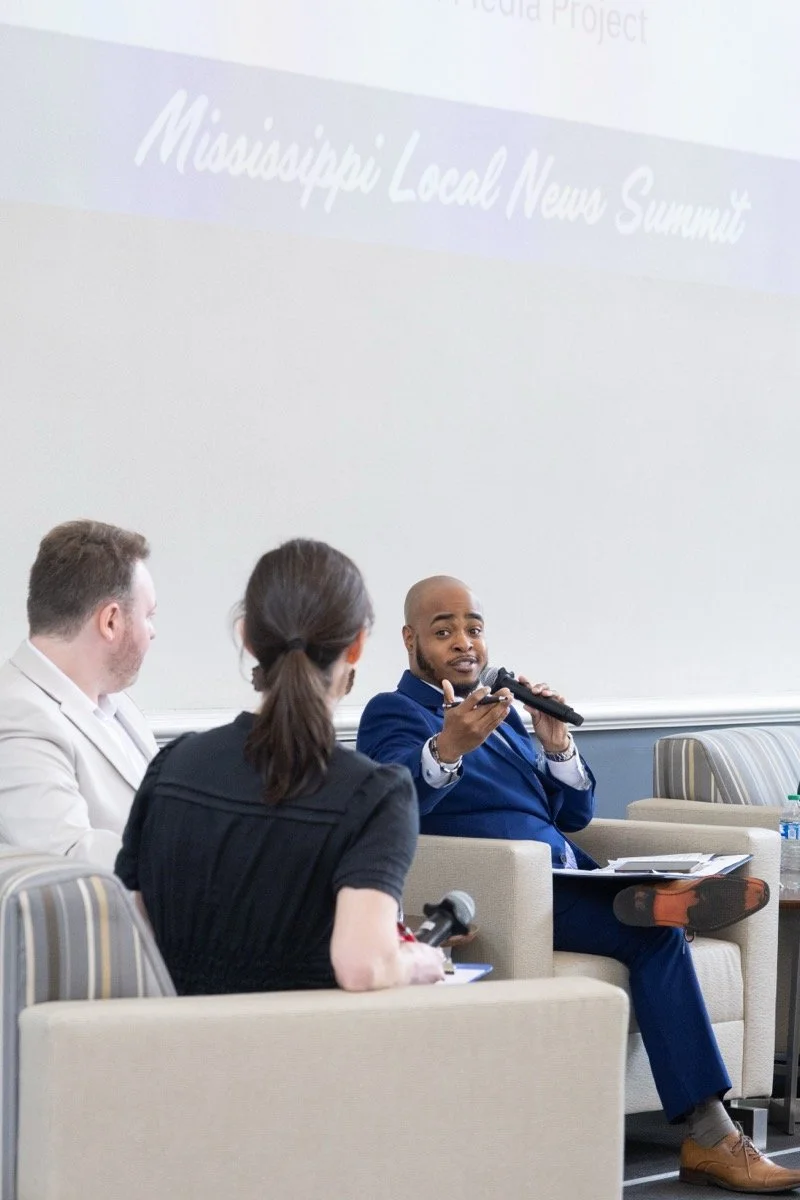
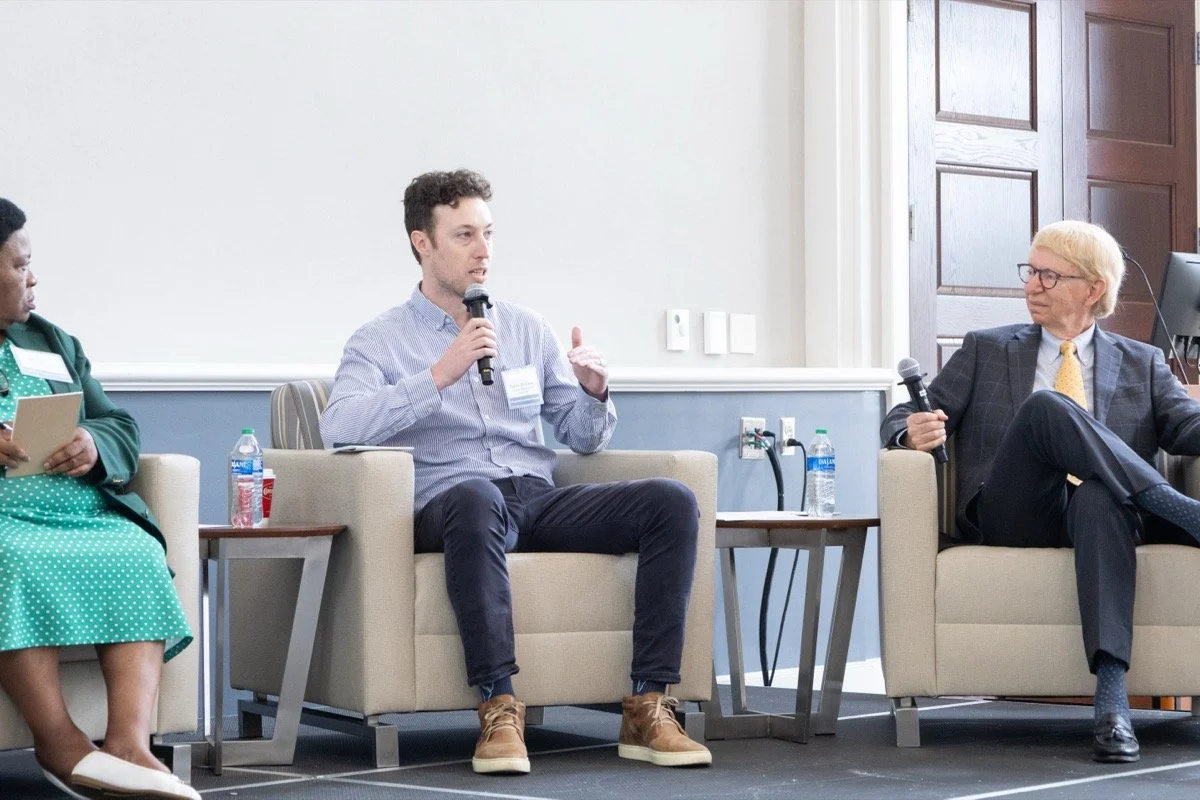
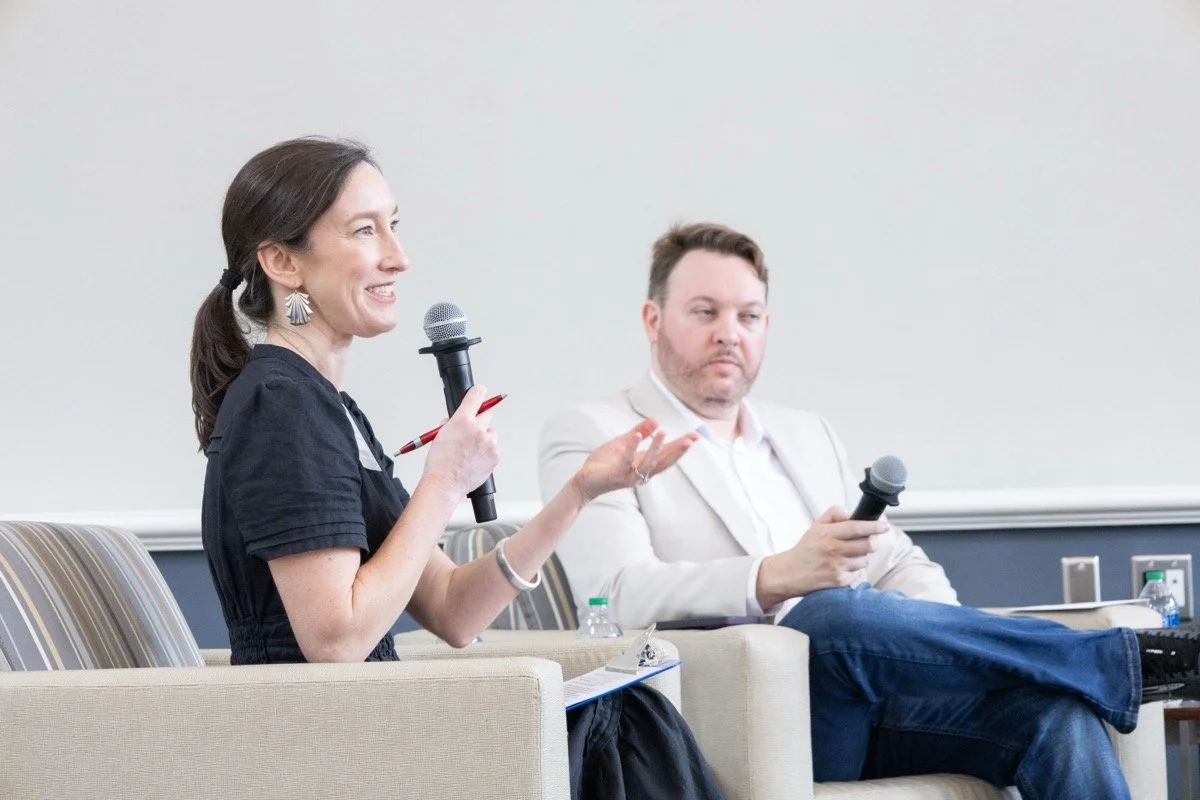
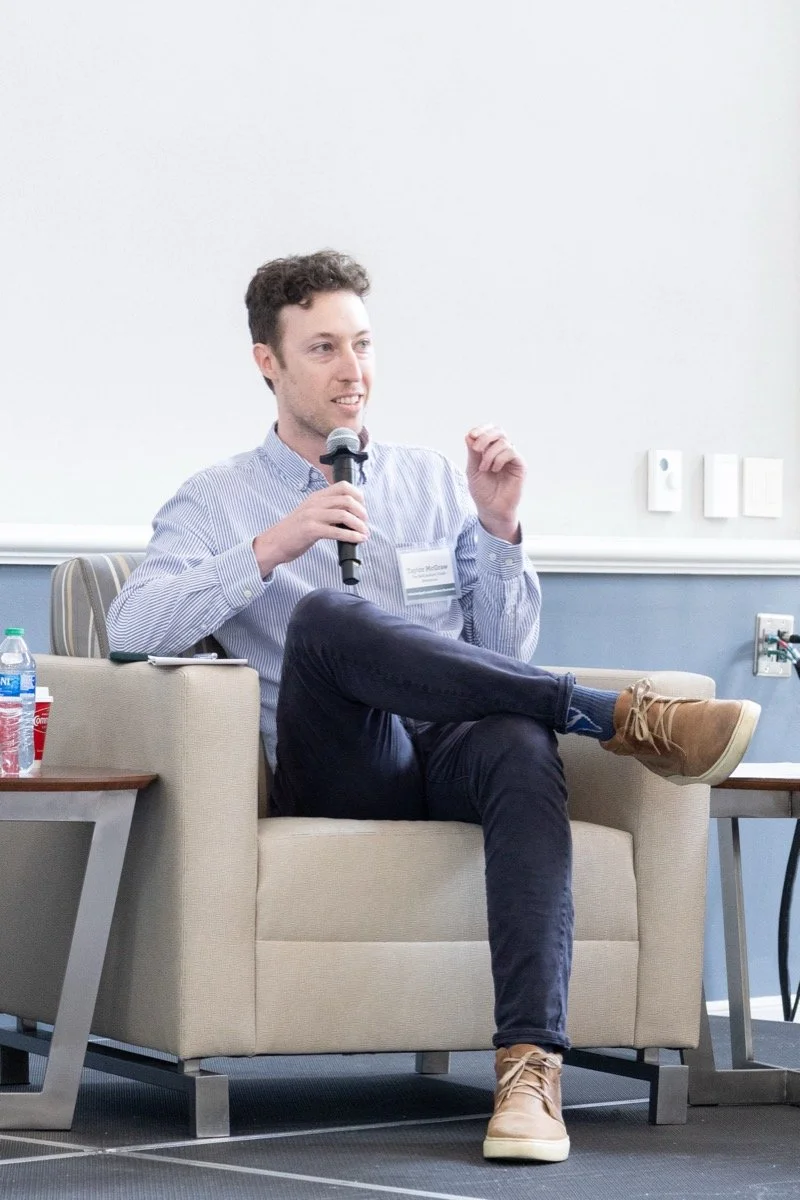
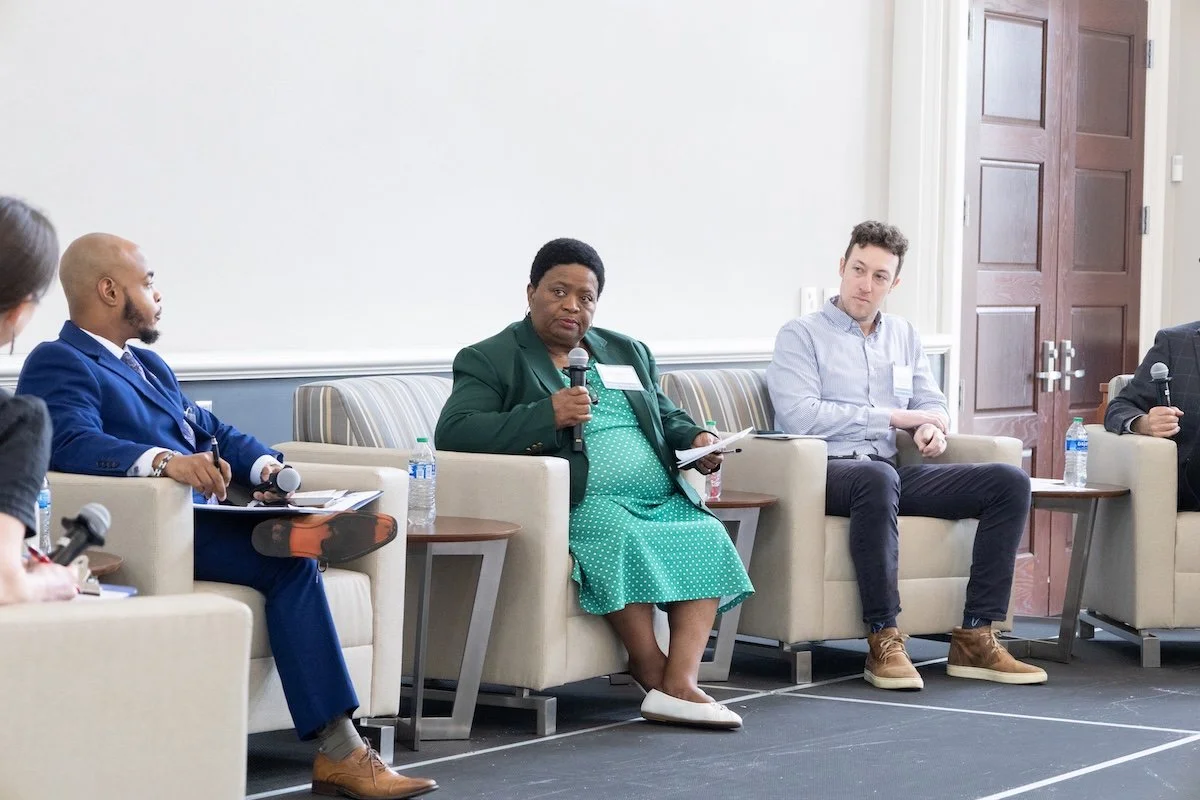
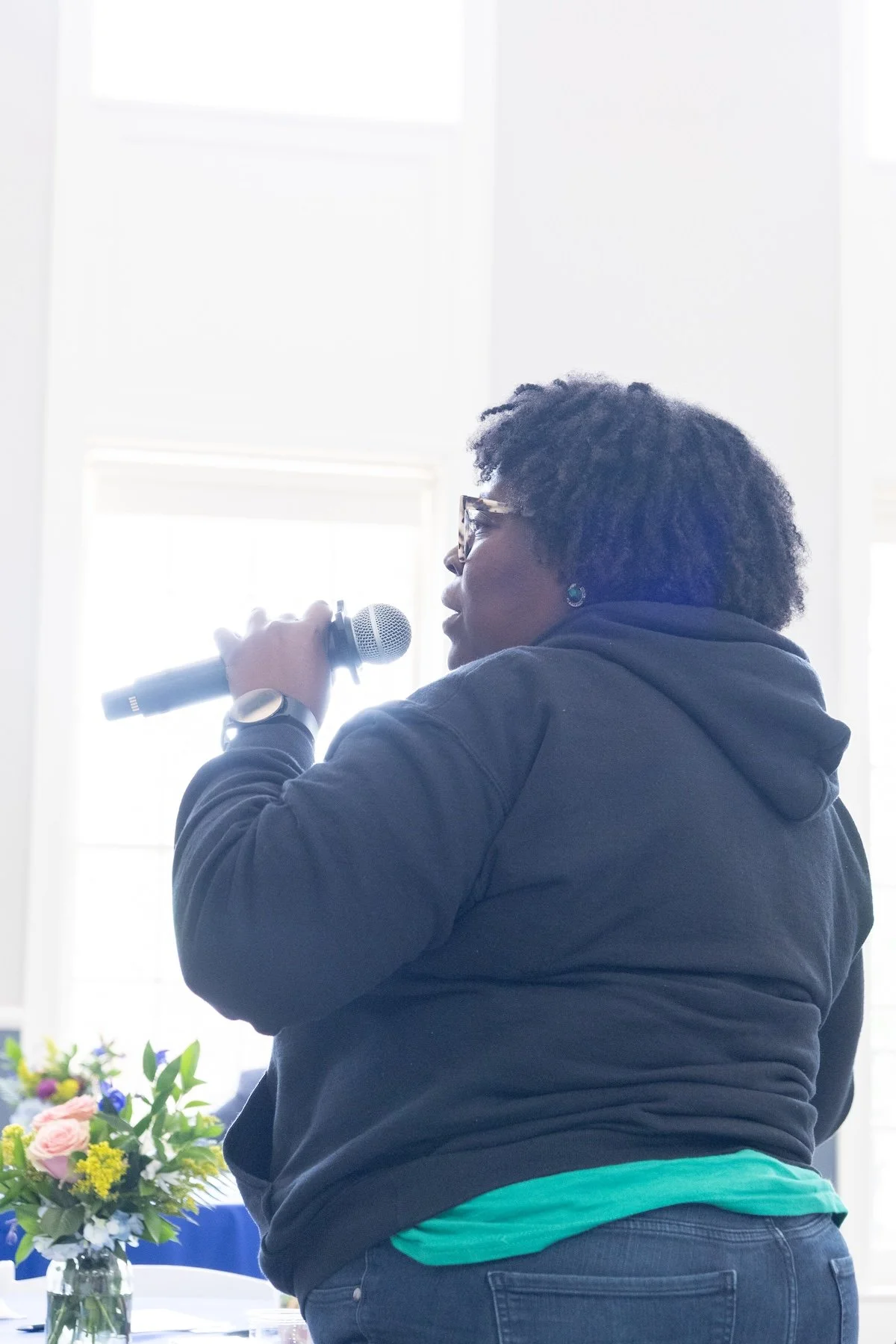
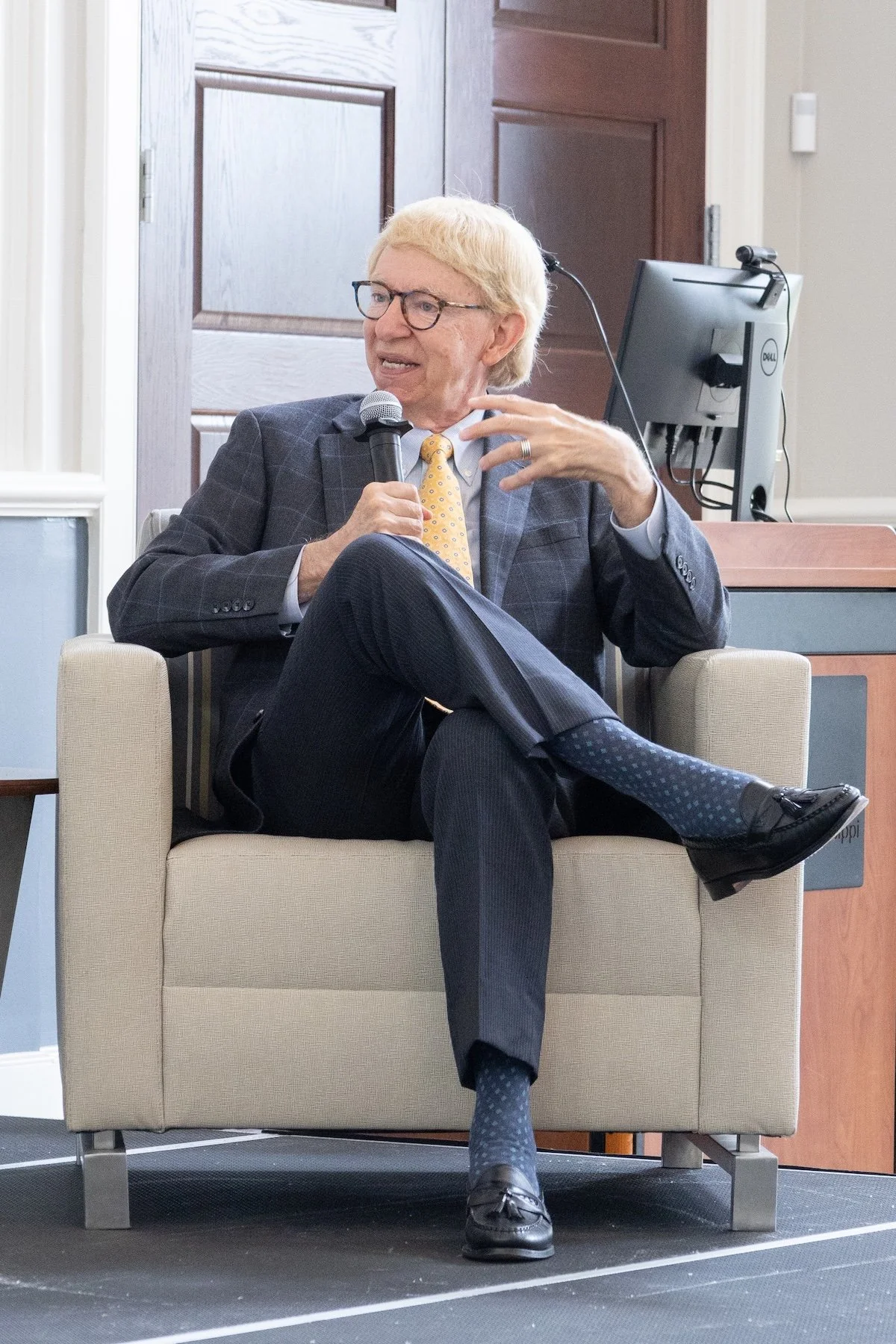
-
Mississippi media outlets struggle to recruit and retain strong local reporters. At the same time, community-based funders see value in helping young people build journalism skills—both as a workforce strategy and as a way to foster civic engagement.
-
Programs across Mississippi are helping students grow into more thoughtful, informed citizens—and in some cases, future journalists—by giving them firsthand experience producing news. The newest example is the Jackson Youth Newsroom, a program by New York-based nonprofit The Bell, which is equipping teens to cover their community and tell their own stories. In the private sector, the Gray Media Training Center at WLBT has created its own direct path from the college classroom to the broadcast newsroom. Journalism training programs are about more than just skills—they’re about relationships. Young people are looking for adults who will mentor them, listen to them, and take them seriously.
-
There’s a strong need to expand access to journalism experiences at the high school level, especially in underserved areas. Leaders also emphasized the importance of teaching ethics, critical thinking, and accountability—skills that benefit students no matter their career path. More funding and school-based partnerships are needed to make these opportunities widely available across the state. Local outlets can start by connecting with the journalism advisor at their local high school, or by supporting their school’s efforts to create a journalism program if one doesn’t exist.
“We’ve got to work with schools. Young people are in school 8 to 3, Monday through Friday, 180-something days a year — and in Mississippi, the vast majority are not getting access to journalism education, news literacy and civics instruction. As journalism leaders around the state, we’ve got to step up. I think all of us in this room have a responsibility to work with schools.”
more About the 2025 Mississippi Local News Summit
Coming Together to Strengthen Local News
The 2025 summit was be sponsored by Press Forward Mississippi as the first initiative from its pooled fund, housed at the CREATE Foundation and stewarded for statewide benefit.
Mike Clayborne, CEO of the CREATE Foundation, emphasized that bringing media leaders together is a key strategy for supporting a more sustainable future for local journalism.
“Across Mississippi, journalists and media leaders have different business models, different challenges, and different perspectives—but they share a belief that strong local news is critical to the future of our communities,” Clayborne said. “By coming together, they are building relationships and finding ways to work across those differences to serve the people of Mississippi better.”
Press Forward Mississippi is a coalition of funders focused on community impact. The Press Forward movement invests in journalism as a tool for building stronger communities, helping to ensure that people have access to the information they need to make informed decisions, engage civically, and work toward solutions.
A Catalyst for Future Investment
Earlier in 2025, Press Forward Mississippi received a $250,000 Catalyst Grant from Press Forward National to launch projects that can strengthen Mississippi’s news and information ecosystem. The CREATE Foundation has also committed $100,000 toward the effort.
The goal is to use this funding as seed capital for initiatives that promote sustainability, collaboration, and shared resources across the state’s media community.








